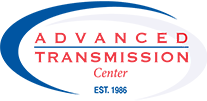Understanding the world of automobile maintenance can be daunting, especially when it comes to specific components like transmissions. Transmission shops offer specialized services to ensure that this critical part of your vehicle is functioning optimally. This article discusses the various services provided by transmission shops, the processes involved, and how to choose the right shop for your needs.
Understanding Transmission Shops
Transmission shops are specialized automotive repair facilities specializing in all aspects of your vehicle’s driveline. Unlike general auto repair shops, these facilities are equipped with tools, equipment, and expertise specifically focused on transmission work. They deal with both automatic and manual transmission systems, offering services that range from minor repairs to complete rebuilds or replacements. The complexity of modern transmissions, particularly with advanced technologies such as CVTs (continuously variable transmissions) and dual-clutch systems, has only increased the need for specialized shops. These facilities not only repair but also rebuild transmissions, ensuring that they meet or exceed factory specifications.
The Role of Transmission Shops in Vehicle Maintenance
Transmission shops play a crucial role in maintaining vehicle performance and safety. The transmission is responsible for transferring power from the engine to the wheels, and even minor issues can lead to significant performance problems or safety hazards. Regular maintenance and timely repairs by experts can prolong the life of the transmission and improve overall vehicle efficiency. Additionally, many transmission shops offer preventive maintenance services, such as fluid changes and filter replacements, which can help avoid costly repairs down the line. By keeping the transmission in optimal condition, drivers can experience smoother shifts and better fuel economy, contributing to a more enjoyable driving experience.
The Importance of Specialized Transmission Services
Specialized transmission shops are essential for addressing driveline issues that general auto shops do not have the expertise or equipment to handle. Technicians at these shops undergo extensive training to stay updated on the latest transmission technologies. This specialization allows them to diagnose problems more accurately and efficiently, ensuring that vehicles receive the right type of care. In addition, transmission shops utilize state-of-the-art diagnostic equipment that can pinpoint issues that may not be visible during a routine inspection. This advanced technology not only saves time but also helps in providing a more cost-effective solution for the vehicle owner. Furthermore, the ability to access manufacturer-specific repair information allows these specialists to perform repairs that meet the original equipment specifications, thereby increasing the reliability and longevity of the vehicle’s transmission system.
Comprehensive List of Transmission Shop Services
Transmission shops offer a wide array of services tailored to meet the unique needs of each vehicle. Below is a comprehensive list of the most common services provided by these specialized shops.
Transmission Repair and Rebuilding
When a transmission malfunctions, transmission shops provide both repair and rebuilding services. Transmission repair services may involve replacing worn-out parts, addressing leakages, or repairing malfunctioning electrical circuits. In cases where the transmission is severely damaged, a complete rebuild might be necessary, which includes tearing the transmission down, replacing broken or worn parts, and rebuilding the transmission to OEM specifications. Many shops also offer warranties on their rebuilt transmissions, providing peace of mind for vehicle owners. Additionally, they may provide options for upgrading to a heavier duty transmission that can enhance performance, especially for those who use their vehicles for towing or off-road adventures.
Transmission Fluid Change Services
Regular transmission fluid changes are vital for maintaining the health of your vehicle’s transmission. This service helps to prevent overheating, reduces friction, and maintains smooth operation. Transmission shops typically recommend this service at regular intervals based on the manufacturer’s guidelines or driving conditions to ensure optimal performance. Depending on the design of the transmission, this might involve simply draining the old fluid and replacing it with new fluid, or might involve removing the transmission pan, replacing a filter, and then refilling the transmission with new fluid. This proactive approach can significantly extend the life of the transmission and improve overall vehicle efficiency.
Transmission Inspection and Diagnostic Services
Effective diagnostics are the backbone of any repair operation. Transmission shops often provide thorough inspections and diagnostic services to identify issues before they escalate. This will include electronic diagnostics, visual inspections, and performance tests to ascertain the health of the transmission system. Advanced diagnostic tools can pinpoint specific problems, such as sensor malfunctions or electrical issues, which may not be immediately apparent. In addition, many shops offer a comprehensive report detailing their findings, which can help vehicle owners understand the condition of their transmission and make informed decisions regarding necessary repairs or maintenance.
Decoding the Transmission Repair Process
Understanding the repair process can ease the minds of vehicle owners. Knowledge of what to expect during transmission repair helps in maintaining transparency and trust between the customer and the repair technician.
Initial Transmission Diagnosis
The first step in the repair process is a comprehensive diagnosis. Technicians will utilize advanced diagnostic tools to evaluate the transmission’s performance and identify any fault codes. This assessment helps determine whether the issue is related to the transmission itself or if other components of the vehicle are actually causing the problem. Additionally, technicians will perform a visual inspection of the transmission fluid, looking for signs of contamination or burnt fluid, which can indicate deeper issues that may need addressing.
The Repair or Replacement Decision
After diagnosing the issue, the technician will present the findings to the vehicle owner, including recommendations for possible repairs or rebuilding of the transmission. This decision is based on factors such as the extent of the damage, the vehicle’s age, availability of parts and the estimated cost of repairs compared to the value of the vehicle. Furthermore, technicians often provide insights into the long-term implications of each option, helping owners understand how their choice may affect the vehicle’s performance and reliability moving forward. This transparency can be crucial for owners who may be facing tight budgets or those who wish to maintain their vehicle for years to come.
Post-Repair Transmission Testing
After the repairs are completed, technicians perform rigorous testing to ensure that the transmission is working correctly. This involves road testing and electronic diagnosis, as well as checks for leaks or unusual noises. Ensuring that everything operates smoothly is crucial before returning the vehicle to the owner. This thorough approach not only guarantees the quality of the repair but also provides peace of mind to the vehicle owner, knowing that their transmission has been restored to original equipment standards. In some cases, technicians may even offer a follow-up service, encouraging owners to return after a certain mileage for an additional inspection, ensuring the longevity of the repair work done.
The Cost of Transmission Services
The cost of transmission services can vary widely depending on several factors, including the type of service required, the make and model of the vehicle, and the region in which you are located. Understanding these factors can help vehicle owners budget accordingly. Additionally, it’s important to consider that regular maintenance can often prevent more costly repairs down the line, making it a wise investment for vehicle longevity.
Factors Influencing the Cost of Transmission Repairs
Several factors can impact the costs associated with transmission repairs, such as:
- Type of Transmission: Automatic transmissions usually cost more to repair than manual ones due to their complexity and larger number of parts. This complexity arises from the intricate systems of hydraulic pumps, sensors, and electronic controls that automatic transmissions utilize.
- Severity of Damage: More extensive damage requires more hours of labor and higher parts costs, increasing the overall price. For instance, a simple fluid change may cost significantly less than a complete rebuild, which can involve replacing multiple internal components.
- Labor Rates: Labor costs vary based on the type of work being performed. Basic repairs might be made by a technician, while a full rebuild requires the expertise of a transmission rebuilder. Obviously local wage rates and cost of living will also result in changes in labor rates in a given market.
Understanding Transmission Service Pricing
Transmission service pricing can sometimes be complex, with various services billed at different rates. It is advisable for car owners to obtain a detailed estimate before commencing any work. Many transmission shops offer free diagnostic services, which can give you a cost estimate outlining parts and labor involved. Furthermore, understanding the difference between preventative maintenance, such as fluid changes, and reactive repairs can empower vehicle owners to make informed decisions about their transmission health.
Moreover, it’s essential to consider the long-term implications of transmission service costs. Investing in routine maintenance can significantly extend the lifespan of your transmission, potentially saving you thousands in the long run. Regular checks can catch minor issues before they escalate into major problems, allowing for timely repairs that are often less expensive than extensive overhauls. As such, vehicle owners should not only focus on immediate costs but also weigh the benefits of proactive care against the risks of neglecting their transmission system.
Choosing the Right Transmission Shop
Selecting a reputable transmission shop can be the key to ensuring your vehicle receives the best care possible. With so many options available, knowing what to look for can make all the difference.
What to Look for in a Transmission Shop
When choosing a transmission shop, consider the following:
- Experience and Specialization: Look for a shop with technicians who specialize in transmissions and have substantial experience in the field.
- Customer Reviews and Reputation: Check online reviews and ask for recommendations from friends or family.
- Warranty and Guarantee: A reputable shop should offer warranties on both parts and labor to ensure confidence in their services.
- Affiliations: Quality transmission shops will often be members of industry groups such as ATRA (Automatic Transmission Rebuilders Association). Additionally, they will be recognized and/or affiliated with organizations like AAA.
Questions to Ask Your Transmission Specialist
Before committing to any repairs or services, it is good practice to ask the transmission specialist a few pertinent questions:
- What is the estimated timeline for completion?
- Can you explain the problem in detail?
- Are there cheaper alternatives or preventative measures I can take?
In conclusion, transmission shops provide essential services that are pivotal to a vehicle’s performance and safety. By understanding the services they offer, the repair process, the associated costs, and how to choose the best shop, vehicle owners can feel more empowered and informed about their decisions. Whether you are facing minor issues or significant transmission troubles, seeking expert help from a trusted transmission shop is crucial.


 Free Customer Towing Service
Free Customer Towing Service  Free TrueTest™ Inspection
Free TrueTest™ Inspection  Fast Transmission Services
Fast Transmission Services  Comprehensive Warranty in Denver
Comprehensive Warranty in Denver 

























